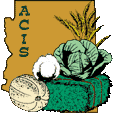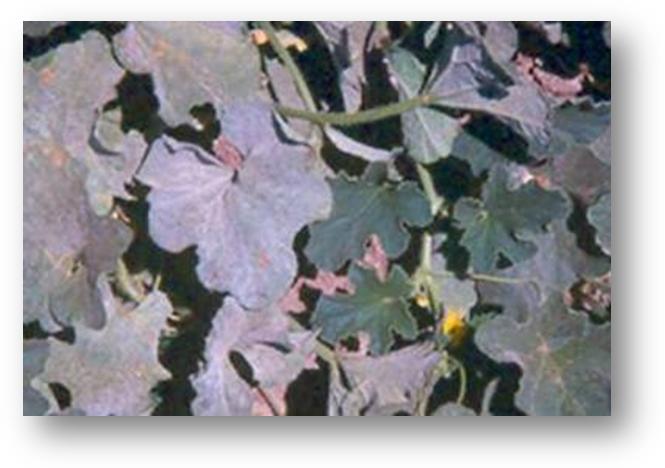 |
|
|
|

|
|||
| |
|||
Melon growers need to keep in mind that powdery mildew can occur on fall melons in the desert. As with powdery mildew development on spring melons, the disease first becomes apparent as very small colonies that may be few in number. However, these spots will enlarge and produce ever larger quantities of spores, which in turn initiate more infections to bring about a rapid increase in disease symptoms. Past fungicide evaluation trials have shown that several registered fungicides can manage powdery mildew very well, including Microthiol Disperss (wettable sulfur) Quintec (quinoxyfen), Procure (triflumizole), Rally (myclobutanil), and Endura (boscalid). In a field evaluation trial conducted last spring, three new fungicides in development provided excellent control of powdery mildew, indicating that additional effective compounds for disease management may be available in the future. Effectively managing powdery mildew with fungicides is best achieved by initial application before the first visible presence of the disease. Good levels of disease control also can be obtained by not starting applications until the first visible sign of powdery mildew; however, disease management success will decrease as the initial treatment is delayed and the disease becomes more established. The fungus responsible for powdery mildew on melons has developed resistance to some fungicide active ingredients in the past. Maintaining long-term effectiveness of the products currently available requires the use of resistance management strategies, such as alternating among products with different modes of action. The risk of powdery mildew within a particular melon planting will be determined by the genetic susceptibility of the melon cultivar as well as environmental factors during the growing season.
To contact Mike Matheron go to: matheron@ag.arizona.edu.
|
|||
| Back | |||
For questions or comments on any of the topics please contact Marco Pena at the Yuma Agricultural Center. |
|||
| Home | Cotton
| Veggies | Forages
| Grains | Citrus
| Crop x Crop Insects | Diseases| Weeds | Pesticides | Economics | News | Weather | Research | Photos | Contacts | General Info. Copyright © 2001 University of Arizona, College of Agriculture and Life Sciences Webmaster: Al Fournier (acis@ag.arizona.edu) |
|||
